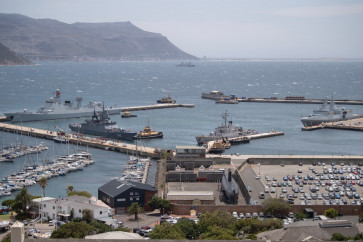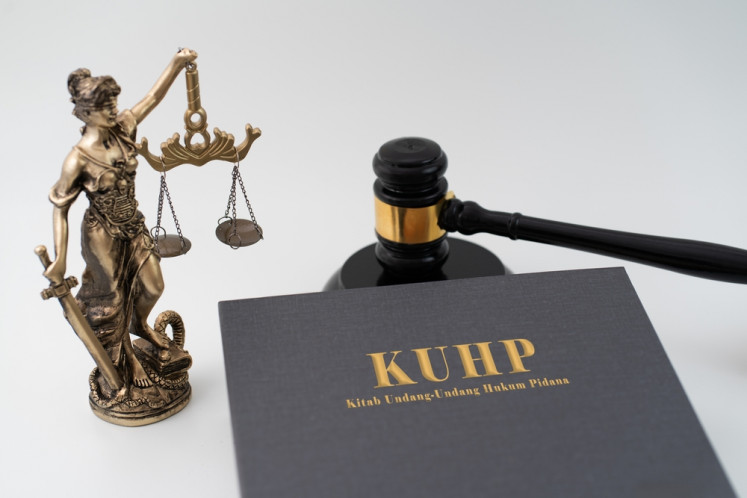Popular Reads
Top Results
Can't find what you're looking for?
View all search resultsPopular Reads
Top Results
Can't find what you're looking for?
View all search resultsSamuel P. Huntington: A critical obituary
Just a day before the Christmas last year, Samuel P
Change text size
Gift Premium Articles
to Anyone
Just a day before the Christmas last year, Samuel P. Huntington, the Albert J. Weatherhead Professor of Government at Harvard University, passed away at the age of 81 . “Harvard has lost a towering figure,” notes fellow Harvard professor Robert D. Putnam, a close colleague of Huntington and author of Making Democracy Work (1993).
Not only has Harvard University and the community of scholars at large lost one of the most influential political scientists over the past decades, but the US political elite and statesmen have also lost a brilliant and top-rated controversial scholar whose ideas and works left a deep impact on policy making in the world politics.
At this stake is my proposed thesis: that is, Huntington’s ideas and works should be read, explained and interpreted in terms of the embedded scholarship within the larger political interests of the American imperial power over the rest of the world. Chief among his works is the controversial article on “The Clash of Civilizations”, which was deliberately published in Foreign Affairs (1993), a must-read journal for Washington policy makers.
Shortly after the end of the Cold War, history came to an end, as Francis Fukuyama put forth his well-known thesis titled “The End of History and the Last Man” (1992). As a critical response to Fukuyama’s thesis, Huntington argued that the defeat of communism did not mean that history would come to an end with the victory of American liberalism.
As the Cold War came to an end, Huntington directed a new chapter in the history of world politics by looking at a closer view of the great divisions of the world that are based upon neither ideological nor economic lines.
Central to the thesis of the clash of seven or eight major civilizations is widely referred to as a particular form of clash between “the West” and “the East,” “the occident” and “the orient,” and, quite explicitly, between “America” and “Islam”.
“The Orient” refers to a stereoty-pical representation of Islam as distinguished from and opposed to the ideal type of the Occidental Anglo-Saxon Protestant identity, namely American Protestantism to which Huntington belonged. The relationship between the two is a relationship of binary opposition, of superiority and of hegemonic knowledge of the Occidental rational Protestantism.
His construction of the polar opposite between two particular types of civilization identities has influenced the way in which Washington policy makers shaped and continue to exert the politics of imperial foreign policy over the oriental Islamic world.
This imperial power has been completed through various forms of political imperialism, ranging from the aggressive “war on terror”, the one-sided battle against Iraq, the invasion of Afghanistan, and the open confrontation with Iran.
In the pursuit of his academic career, Huntington did not seem to operate his intellectual position as befitted a value-free political scientist. Indeed, he was actively engaged in advocating a particular type of academic legitimacy to the supremacy of the American empire. His scholarship and the pursuit of American empire were locked in a tight mutual interest between himself and his beloved nation.
Three years before his death, Huntington shifted his academic concerns away from international politics to America’s national identity after the latter was faced with a national crisis. In 2005, Huntington published his last book, Who are we? The Challenges to America’s National Identity, an equally controversial book to his previous thesis of “The Clash of Civilizations and the Remarking of World Order.”
Both works are equally compelling proof for the intertwined ethics of scholarship and his fierce loyalty to the larger political interests of the US imperial power. During the last years of his life, Huntington felt that, as a proud American citizen, his beloved nation was at the crossroads.
Its Anglo-Protestant national identity had come under serious threat from the increasing numbers of Latino-Mexican immigrants who were unlikely to learn English and to adjust their cultural identity to the American national identity at large.
His previous theory of the clash of major civilizations in the world is still applicable to signify the domestic challenges of Mexican immigrants who have been perceived of as a source of cultural clash with an Anglo-Protestant national identity.
Huntington seems to be monoculturalistic and was certainly not proud of having America as a projected nation of multiculturalism, for it ran contrary to the historical legacy of Anglo-Protestant American identity.Irrespective of our disagreement with his political views, we are forced to critically engage in the public discourse of certain issues that have been raised by Huntington in many of his books and scholarly articles.
The writer is a member of the board of advisers at the Centre for Strategic and International Studies (CSIS) and the Indonesian Institute.










